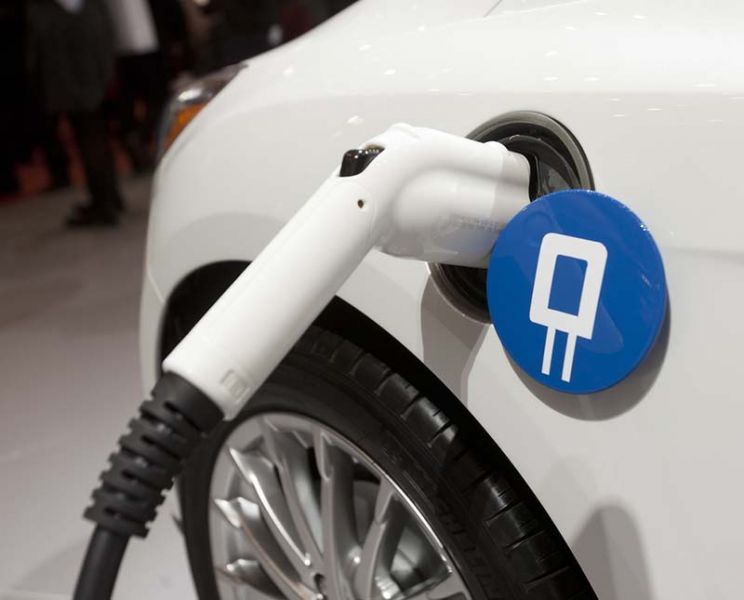All the plans of General Motors, Tesla and more for the future of cars

According to market research firm CB Insights, more than 70 startups have recently been launched in the electric car industry. The in-depth analysis of the Financial Times
Full of epic successes and spectacular failures, the early history of the automotive industry offers clues to its future as well. As is often the case during technological revolutions, the initial bursts of fast-paced and frantic experimentation by wild-eyed pioneers are followed by waves of industry consolidation by more sober corporate types.
So it has been in the United States since 1890, when dozens of visionary entrepreneurs launched the modern auto industry. Over the next few decades, they founded hundreds of companies that produced thousands of different models. In the words of one historian, these dedicated enthusiasts competed in a "drastically Darwinian" world and seemed to prefer to "go broke making cars than getting rich by doing something else," a tune that still resonates today.
But the development of capital-intensive methods of mass production, the Great Depression and World War II reduced competition. In 1950, the industry was dominated by only three giants: General Motors, Ford and Chrysler, which between them accounted for about three-quarters of global production.
Today, the auto industry is once again opening up to new entrants amid yet another technological convulsion as electric and connected vehicles – and perhaps ultimately autonomous cars – replace human-driven combustion engines. As this revolution unfolds, we are seeing another explosion of creative competition as entrepreneurial start-ups and tech companies enter the market – writes the FT .
According to market research firm CB Insights, more than 70 startups have recently been launched in the EV sector, from car makers and battery companies to charging infrastructure providers. Investments in the EV start-up market are on track to reach $ 16.3 billion this year, a 28 percent increase over the previous year.
By far the most successful of the new entrants was Tesla, founded by the mercurial Elon Musk. Tesla has redefined the entire EV industry and boasts a market value of approximately $ 632 billion, larger than GM, Ford, Toyota and Volkswagen combined. But if the past is truly the prologue, then some of the newest startups are doomed to die out amid overheated tech claims and manufacturing disasters. "There is a nefarious waste of money," says Peter Rawlinson, CEO of auto company EV Lucid, predicting that 80 percent of EV start-ups and 20 percent of traditional auto makers are doomed to fail. .
However, the former Tesla engineer remains convinced that the transition to an EV world will happen faster than expected, driven by the environmental imperative. Lucid is launching its EV luxury sedan later this year with a range of over 500 miles, enough to drive from San Francisco to Los Angeles on one charge. “We are at the height of a transportation revolution. The environment is in crisis. The world needs millions of electric cars tomorrow, ”Rawlinson told me at the Founders Forum tech event last week.
For the moment, the EV sector is a small, albeit rapidly expanding market, encouraged – and often heavily subsidized – by environmentally conscious governments. According to data provider EV-volumes.com, global EV sales rose to 3.24 million in 2020, up from 2.3 million a year earlier, with Europe overtaking China as the fastest growing market. growth of the world.
It is an open and fascinating question, who will ultimately consolidate the EV market. Many are betting on Chinese companies dominating the mass market for electric vehicles. US tech giants like Google and Apple see cars as "computers on wheels" and are increasing their ambitions in the industry. While many have arrived late, traditional automakers are investing heavily in electric vehicles.
GM's vision is to create a zero accident, zero emissions, zero congestion car market. Mary Barra, GM's president and CEO, announced this month that the company would spend $ 35 billion on EV investments by 2025, in a process driven by customer demand. "Across the board we are seeing exceptionally strong reactions and a positive response to all of our electric vehicles," he told CNBC.
The industry's dream is to create an attractive and reliable $ 25,000 electric car that overcomes range anxiety. As Alain Kornhauser, a professor at Princeton University, says, the winners will be those who manage to build cars that appeal to everyday drivers as well as “greasers and truckers”. "It's all about sociology, not technology," he adds.
In other words, it will be, as it has always been throughout history, the customer who decides.
(Extract from the Epr press review)
This is a machine translation from Italian language of a post published on Start Magazine at the URL https://www.startmag.it/smartcity/general-motors-tesla-auto-elettriche/ on Sun, 27 Jun 2021 06:00:29 +0000.
